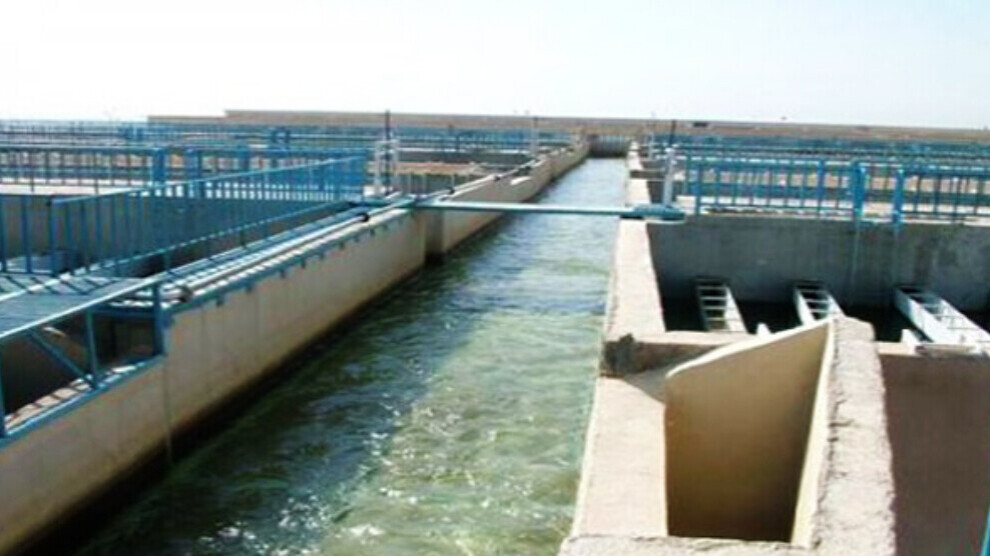The invading Turkish state continues to use water as a tool of war against the people of North-East Syria after its invasion plans against the region were foiled. The invaders, who use water to put economic pressure on the Autonomous Administration, mostly target the Alouk Water Station and the Euphrates River.
The Turkish state and its mercenaries have been cutting off the water reaching Hesekê Canton from Alouk (Elok) Station for more than two years. Although agreements have been made for the delivery of water to Hesekê, the Turkish state and its mercenaries constantly violate them.
Millions of people in the Hesekê Canton have been suffering from lack of water after the occupation forces cut off water supply from the Alouk Station, which used to be the main drinking water source of the Hesekê region before the invasion in October 2019 and has been under the control of the occupation forces since. The Turkish state cut off the water at least 36 times as a means of special warfare.
Speaking to ANHA, Isa Yunis, co-chair of the Water Directorate in Heseke, said that they worked with UNICEF to re-operate the Alouk station. Yunis refuted the media reports that the Damascus government is seeking to solve this problem, adding that the Damascus government accuses the Autonomous Administration of North and East Syria (AANES) of being a party to the conflict of water crisis.
Yunis pointed out that: "The invading Turkish state is using the Alouk state as a means of pressure against AANES and telling the world that AANES constitutes an obstacle regarding the water issue stops the operation of the Alouk station. This has nothing to do with the truth. We are working to make sure that water reaches our people. We hope that efforts to deliver water to the residents end up in success.”
Regarding the agreement reached in the wake of talks between the Water Directorate in Heseke and UNICEF, Yunis stated: “As per the agreement, we will provide Alouk station with 6 megawatts of electricity from the city of Dirbêsiyê. In return, over 18 wells and more than 4 pumps will be operated, and the water line from the station to Heseke will be followed.”
According to Yunis, the station will start operating in the following days and the process will be monitored by UNICEF. A five-day period will be given for an experiment, and in case of non-compliance with the agreement, necessary measures will be taken.
Yunis concluded: “We do not have information about the latest situation at the station but we asked UNICEF representatives to send a team of theirs to go to the Alouk station to see the situation on the ground. We also asked them to keep the station out of the ongoing conflict in the region, through which the Turkish state aims to displace the residents of the region."
Background
The cutting off of Syria's share of the Euphrates river water by Turkey began in 2017. Since then, the water has been cut off from time to time. But since 27 January 2021, the Turkish state has been cutting off the water systematically.
The Turkish state has been releasing only 200 cubic meters of water per second instead of 500 cubic meters. This violates the 1987 protocol between Syria and Turkey.
The level of the Euphrates has dropped a lot due to the water being cut off for 30 months. The lakes behind three dams on the Euphrates River in Syria, the largest of which is the Euphrates Dam at Tabqa, have decreased significantly.
While the Euphrates Dam reservoir holds 14.5 billion cubic meters of water, it has recently decreased by 4 billion cubic meters due to the decrease in water from South Kurdistan. The water released by the Turkish state is not sufficient to cover the needs for drinking water, irrigation and electricity generation in the region.
The Autonomous Administration of North and East Syria has called on international powers, the governments of Damascus and Iraq to put pressure on Turkey to act in accordance with international law and not steal Syria and Iraq's share of the Euphrates water. However, the governments of Damascus and Baghdad remain silent and do not take any stance against the Turkish state.
The Iraqi government has also declared recently that the country's water reserves were empty and that water from Turkey, Syria and Iran was less than 70 percent of the previous share.















